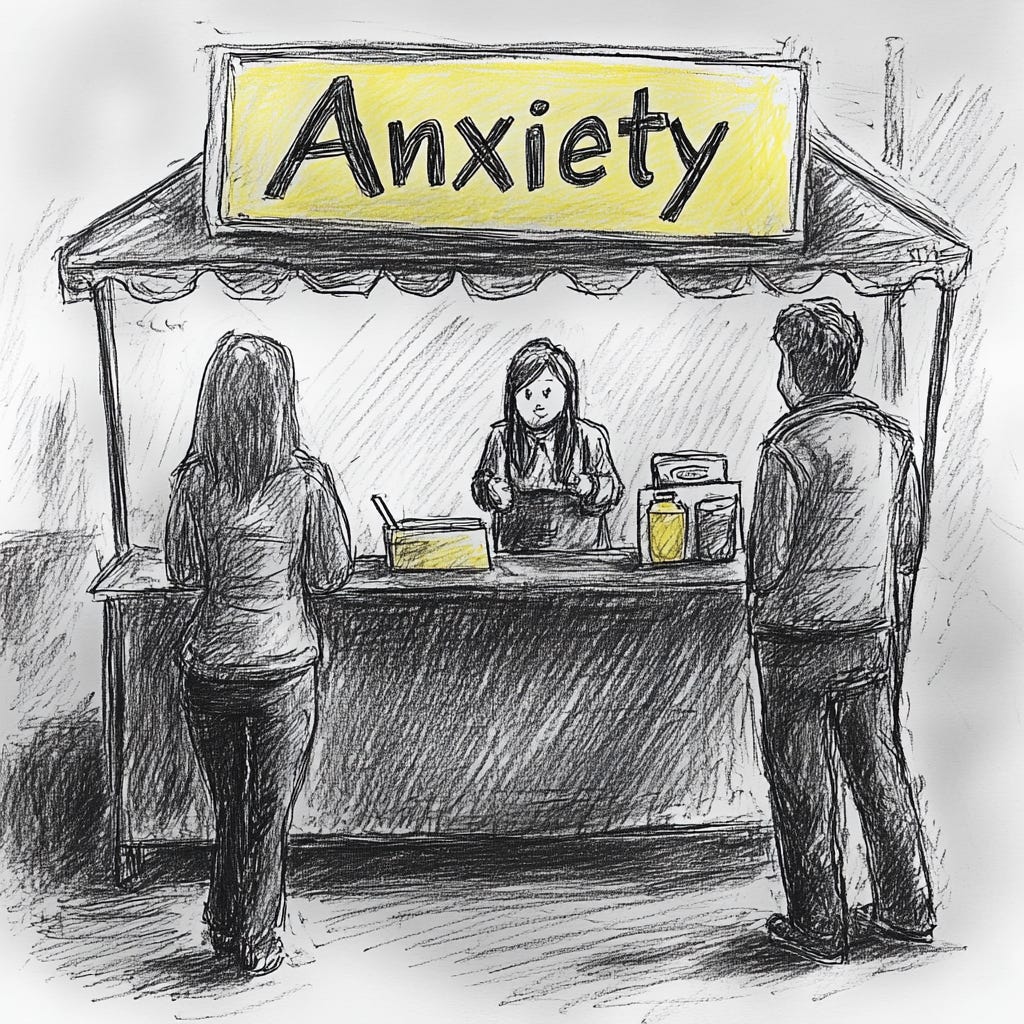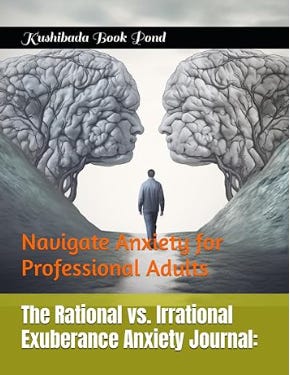Introduction: Breaking News—Your Gender Is Now Whatever the Media Says It Is
Remember when life used to be simple? Men did certain things, women did certain things, and everyone had a rough idea of what they were supposed to be doing. It wasn’t perfect, but it worked—at least better than what we have now.
Fast forward to today, and the media’s message is loud and clear: if you’re clinging to any idea of traditional gender roles, you’re either hopelessly backward or just not “evolved” enough. Gone are the days when men and women had defined roles based on biological and societal realities. Now, we’re supposed to believe that men can be caregivers, nurturers, and emotional anchors, while women can do everything from battling monsters in space to running Fortune 500 companies and baking cupcakes in between.
It’s all very inspiring until you realize that this massive shift is doing nothing but leaving people more confused and anxious than ever. As we push the boundaries of gender, we're also pushing people straight into mental health crises. And yet, the media keeps selling it, as if saying "you can be whatever you want" will somehow cure all of society’s ills.
Section 1: When Traditional Becomes Taboo
The media loves to make anything remotely traditional seem like a relic of the past—something to be mocked, canceled, or completely disregarded. But there’s a reason certain roles evolved the way they did, and it’s not because everyone from history was a sexist dinosaur.
From ancient civilizations to the industrial age, men and women naturally gravitated toward roles that made the most sense given their biological and psychological make-up. Men were hunters, warriors, and providers because they had the physical strength and competitive drive for it. Women, on the other hand, were nurturers and caregivers, not because society forced them into it but because their biology (hello, childbirth) naturally led them down that path. Sure, there was always room for flexibility, but the basic template worked for thousands of years.
Enter modern media, and suddenly anything that hints at these time-tested roles is not only outdated but oppressive. Turn on your TV or open up Instagram, and you’ll find non-stop narratives pushing women as action heroes, CEOs, and emotionless robots. Meanwhile, men are either portrayed as incompetent buffoons, emotional wrecks, or worse—villains. Apparently, being strong, stoic, or even masculine is now problematic.
-
Fact: The Harvard Business Review found that traditional family structures, with more clearly defined roles, have historically been associated with higher levels of marital satisfaction and emotional well-being. When people know their roles, there’s less stress about figuring out who’s supposed to do what.
-
Fact: A 2021 study from Psychological Science revealed that people who adopt more traditional gender roles report 20% lower levels of anxiety compared to those who feel pressured to challenge or redefine their roles.
In short, the traditional roles weren’t perfect, but they worked. And yet, here we are, pretending that ignoring biology and human nature is the key to a utopian future. Spoiler alert: it’s not.
Section 2: Anxiety by Design – The Real Impact of Media’s Gender Experiment
If you’ve ever watched an episode of any modern TV show, you’ll notice one glaring pattern: the overwhelming need to break down traditional gender roles at every turn. Every storyline seems to insist that women can do anything men can do—and probably better—while men are either bumbling fools or emotionally fragile beings who need rescuing.
This shift isn’t just happening on the screen. These portrayals are seeping into everyday life, and the result is an entire generation of people who are more anxious and confused about their identity than ever before. We are constantly bombarded with the idea that we should defy every expectation and reject anything that even remotely resembles traditional roles.
-
Fact: Anxiety disorders are at an all-time high, affecting 40 million adults in the U.S. alone, according to the Anxiety and Depression Association of America.
-
Fact: A 2019 study published in the Journal of Clinical Psychology found that individuals who feel societal pressure to conform to non-traditional gender roles report 30% higher levels of anxiety than those who stick to roles aligned with their natural tendencies.
The media is pushing the narrative that if you’re not constantly reinventing yourself to fit these new, arbitrary roles, you’re falling behind. This is a recipe for disaster. People crave structure, definition, and clarity, especially when it comes to identity. When that’s taken away, you’re left with a constant sense of “I’m not enough,” and surprise—this fuels anxiety like gasoline on a fire.
Section 3: Confusion and Crisis – The Media’s Double Standard for Gender
One of the most glaring issues with the media’s portrayal of gender is its blatant double standard. Women are constantly being depicted as flawless superheroes who can excel in any traditionally male role without breaking a sweat, while men are shown as either idiots or emotionally stunted creatures.
Take any popular action movie or TV show. The female lead is almost always physically and mentally stronger than every man around her, and if she does have any flaws, they’re the kind that only make her more "relatable." Men, on the other hand, are increasingly portrayed as weak, emotionally needy, and incapable of leadership.
-
Fact: A 2020 report from the Geena Davis Institute on Gender in Media found that over 60% of female characters in action films are now portrayed as physically stronger than male characters—a stark contrast from decades past. Meanwhile, male characters are increasingly being written as secondary or support roles.
-
Fact: The American Psychological Association reported that men exposed to constant portrayals of emasculation in media are 40% more likely to experience self-esteem issues, anxiety, and depression.
This double standard doesn’t just harm men—it harms women, too. When women are constantly shown as being capable of doing it all, it creates impossible expectations. Women are now expected to be tough, career-driven, and emotionally impenetrable, which, unsurprisingly, leads to burnout and anxiety.
Section 4: Gender Confusion – The Mental Health Fallout
The mental health impact of this gender-bending experiment is evident everywhere. Both men and women are feeling the pressure to conform to these unrealistic and often contradictory expectations, leading to a range of mental health issues.
For men, the pressure to abandon traditional masculine traits—such as stoicism, leadership, and physical strength—has led to a rise in identity crises. Men are being told to embrace their emotions, be vulnerable, and reject traditional masculinity. While vulnerability has its place, stripping men of their natural instincts is creating confusion and, ultimately, anxiety.
Women, on the other hand, are being told that they can have it all—career, family, success, power—without breaking a sweat. But the truth is, they can’t. No one can. The expectation to excel in traditionally male roles, while also maintaining traditional female responsibilities, is leading to overwhelming stress and anxiety for women everywhere.
-
Fact: According to a 2021 study by the Mental Health Foundation, there has been a 45% increase in reported cases of anxiety and depression among women who feel the pressure to conform to non-traditional gender roles while also maintaining traditional female responsibilities.
When you push people to deny their natural tendencies in favor of some idealized version of equality, you end up creating a society full of confused, anxious individuals who have no idea where they fit in.

Section 5: The “You Can Do Anything” Myth is Hurting Everyone
The media loves to tell us that we can do anything. Women can be Navy SEALs, men can be nurturing caregivers, and anyone who disagrees is just living in the dark ages. But the reality is, not everyone can—or should—do everything.
There’s nothing wrong with acknowledging the natural differences between men and women. In fact, doing so is liberating. It allows people to embrace who they are, rather than trying to mold themselves into some unrealistic ideal. The constant message that we should reject our natural tendencies and try to be everything to everyone is causing more harm than good.
-
Fact: Studies show that individuals who embrace traditional gender roles—rather than fighting against them—experience lower levels of anxiety, higher life satisfaction, and stronger family bonds. The Institute for Family Studies found that men and women who embrace their traditional roles are 25% less likely to suffer from mental health disorders than those who reject them.
The truth is, not everyone needs to be everything. Women don’t need to be warriors, and men don’t need to be emotional sponges. Embracing who we are—flaws and all—is the key to mental health and happiness.
Conclusion: It’s Time to Get Real
The media’s constant push for non-traditional gender roles isn’t freeing us—it’s trapping us in a cycle of anxiety and confusion. Instead of pretending we’re all blank slates who can reinvent ourselves at will, it’s time to recognize that there’s value in understanding the natural differences between men and women.
We don’t need to reject everything that came before us to move forward. In fact, doing so is what’s causing so much of the anxiety we’re seeing today. People crave structure, certainty, and clarity. By denying them that, the media is doing more harm than good.
The bottom line? Stop trying to be everything the media tells you to be. You’re enough just as you are—flaws, quirks, and all.
CTA: Want to save someone from a media-fueled identity crisis? Share this post with anyone who's confused about what the heck they're supposed to be these days.

For a practical way to manage that, check out "The Rational vs. Irrational Exuberance Anxiety Journal." Tailored for professional adults, this 120+ page journal helps you track triggers, symptoms, and coping methods, offering tools to manage anxiety and build emotional resilience. It’s the perfect guide for gaining clarity and control in an increasingly overwhelming world.




Leave a comment
All comments are moderated before being published.
This site is protected by hCaptcha and the hCaptcha Privacy Policy and Terms of Service apply.